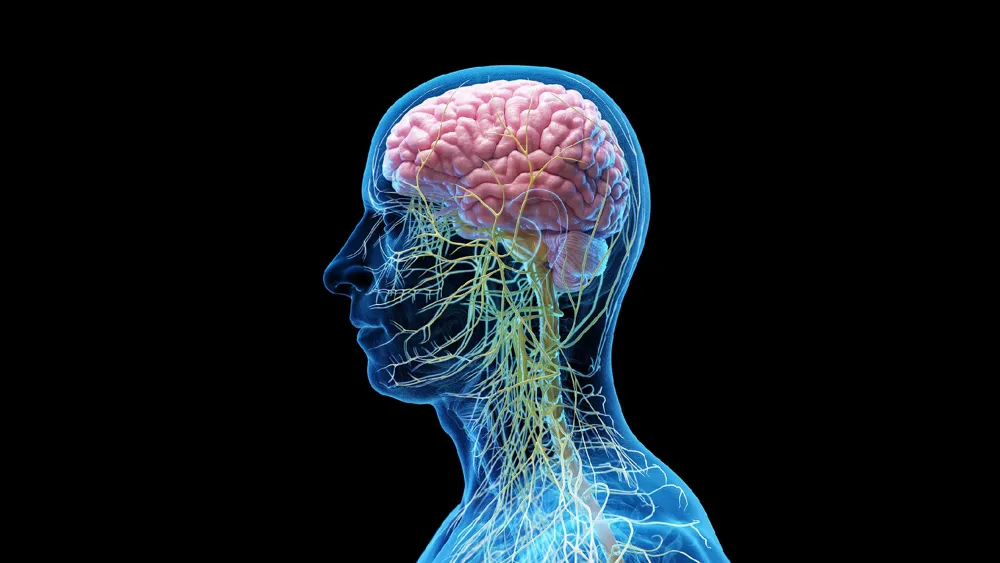Neck Surgery Offers New Hope for Alzheimer's Patients

A novel neck surgery technique known as deep cervical lymphovenous anastomosis (dcLVA) has emerged as a beacon of hope for Alzheimer's patients in China. Reports indicate that 80 percent of individuals who have undergone this surgery have exhibited improvements in cognitive function and overall behavior.
Alzheimer's disease, along with various forms of dementia, affects around 17 million people in China, leading to devastating and irreversible damage to neuronal tissues. Despite the current array of medications designed to alleviate symptoms, their effectiveness is generally restricted to early-stage diagnosis, with only limited relief available to those in advanced stages of the disease.
In a pioneering approach to combat this challenging illness, Chinese medical institutions are exploring the use of dcLVA, a surgical method initially created to treat lymphatic edema, as a potential therapy for those suffering from Alzheimer's.
Dr. Xie Qingping, a surgeon specialized in microsurgery who heads this research initiative, has reported that more than 600 patients have received the dcLVA treatment since its introduction in 2020, yielding promising results with 80 percent of subjects experiencing notable cognitive or behavioral improvements.
The origins of this innovative technique stem from a unique observation made by Dr. Xie during a procedure for a patient suffering from chronic tinnitus. While examining the patient, he detected abnormal structures within the cervical lymphatic system. This led him to connect blocked lymphatic vessels with neck veins, using a combination of lymphatic vessel anastomosis and lymph node to vein anastomosis.
Not only did this approach alleviate the patient's tinnitus, but it also resulted in unexpected neurological benefits such as improved vision clarity and reduced mental fog, indicating potential connections between cervical lymphatic drainage and the detoxification of the central nervous system, as observed by Dr. Xie.
This phenomenon correlates with recent brain research conducted by U.S. neuroscientists, who uncovered the brain's glymphatic system and meningeal lymphatics—previously underestimated drainage systems responsible for eliminating harmful proteins associated with Alzheimer's such as amyloid-beta and tau.
Since the initial patient treatments, Dr. Xie and his team have expanded investigations into a wider range of neurological conditions, performing dcLVA on patients with varying degrees of Alzheimer's disease, along with exploratory cases involving Parkinson's disease and amyotrophic lateral sclerosis.
Preliminary follow-up data spanning three to six months revealed that 80 percent of participants exhibited improved cognitive scores, better quality of sleep, and stabilized emotional states. Imaging studies suggested a decrease in the accumulation of harmful metabolic waste products in the brain, reinforcing the potential efficacy of dcLVA as a treatment.
The technique's emergence has not gone unnoticed, with interest growing internationally as hospitals in cities like Singapore begin arranging similar surgeries. Global clinical trials are in the works, expanding the reach of this unconventional method.
Despite the exciting prospects, there remains skepticism within the medical community regarding dcLVA's mechanisms and long-term efficacy. Nonetheless, Dr. Xie maintains that this exploratory approach represents a new horizon in treating a field that has been in dire need of breakthroughs.
Read These Next

TOMEX+: Innovating Atmospheric Research
TOMEX+ is an innovative atmospheric rocket program aiming to study upper atmospheric turbulence, crucial for satellite technology and extraterrestrial research.

Apple Launches New iPhone 16e with Exciting Features
Apple launched the iPhone 16e, enhancing its smartphone line and impacting global tech trends, especially in China.

Understanding Earth's Water Origins in the Cosmos
Discussion on the significance of the discovery of water on 12P/Pons-Brooks comet and its implications for understanding the origins of water on Earth.
